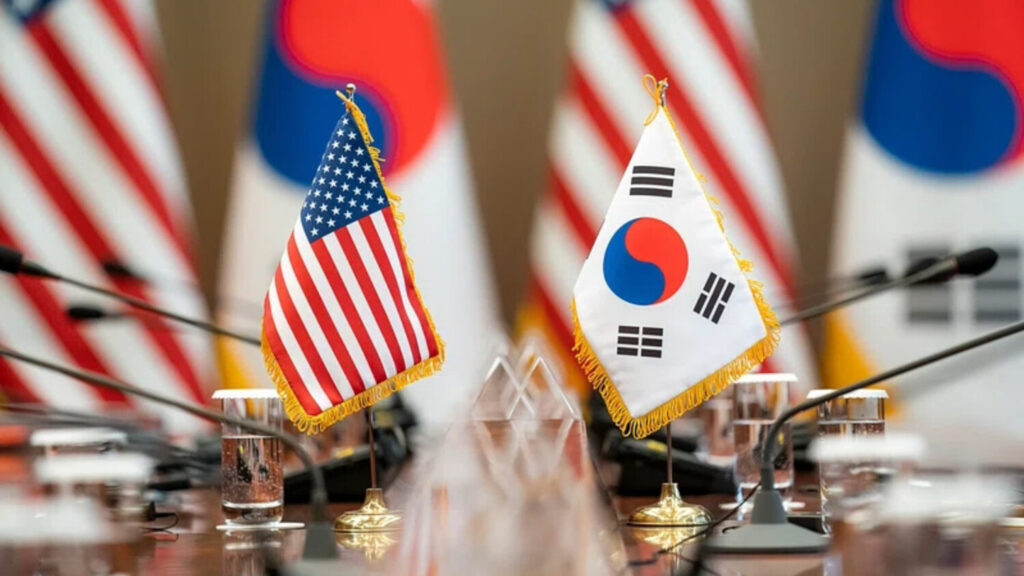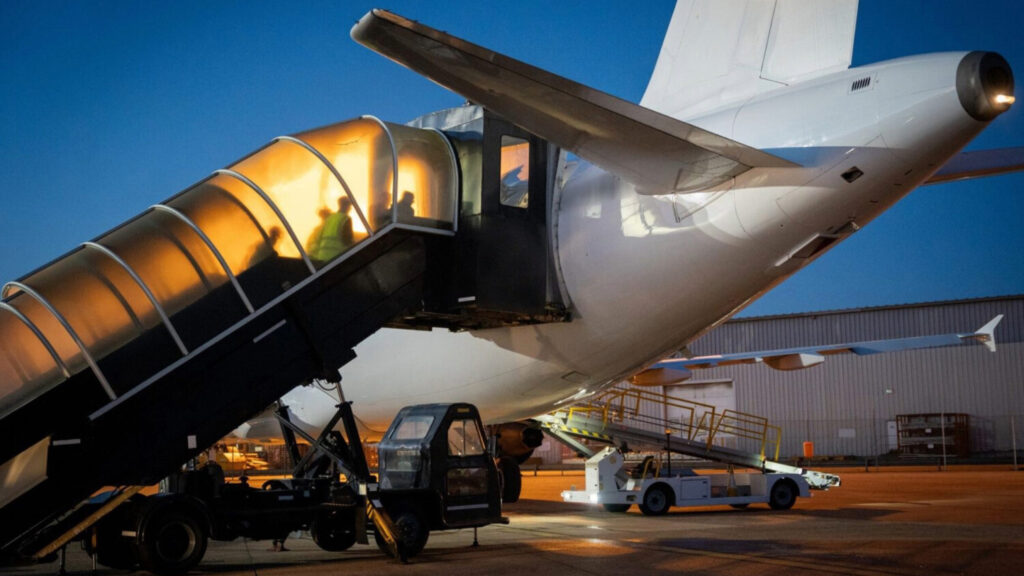Syria One Year On
A year after Syria’s rebel takeover, has the former opposition leader and his post-Assad administration proven fit to lead the New Syria?
In September, Syrian President Ahmed al-Sharaa became the first Syrian leader to address the United Nations General Assembly since 1967, a remarkable turnaround from his isolated predecessor Bashar al-Assad (Associated Press, 2025). In the eleven months following the rebel group Hayat Tahrir al Sham’s (HTS) victory, Syria has made significant political progress, but daunting economic and security challenges persist. The country is on a knife edge; the vested interests of foreign powers may yet guarantee Syria remains a “broken state and an arena for competition” (Hokayem and Momtaz, 2024, P. 230).
The End of an Era
Syria descended into civil war following former president Assad’s repression of Arab Spring protestors in 2011, and military interventions by Iran and Russia prevented the fall of his Alawite minority regime to rebels and the Islamic State (ISIS). Control of Syria’s peripheries fell to outside powers; the US held a military base near the Jordanian border and its Kurdish-dominated Syrian Democratic Forces (SDF) partners governed the northeast; Türkiye and its proxy Syrian National Army seized a buffer zone along the Turko-Syrian border; and HTS, with the tacit support of Türkiye, held a strip of land in northwestern Syria’s Idlib province (Hamza, 2024).
HTS launched its offensive on November 27 last year to exploit the weakness of Assad’s Iranian and Russian patrons, forestall his international normalisation and prevent intensifying regime attacks on the Idlib enclave (Hall, 2024). Its fighters quickly seized Aleppo, and captured Damascus on December 8 with minimal resistance from Iran-backed militias or the demoralized Syrian Arab Army. In the year since, al-Sharaa has compromised between state-building and appeasing regional powers with stakes in his shattered country.
All Change in Syria
Whilst Türkiye sought to normalise relations with Assad, after fruitless bilateral negotiations it let HTS prepare for its offensive and embraced the regime’s rapid collapse (Balkiz, 2025). The survival of al-Sharaa’s transitional government is vital to Türkiye’s regional interests. A stable Syria could handle the return of Türkiye’s Syrian refugee population- long a political headache for President Recep Tayyip Erdogan- and restore control over SDF territory bordering Türkiye’s restive Kurdish areas (Hall, 2025). Erdogan views Syria as a springboard for Türkiye’s status as a global power and his image as an Islamic statesman (Times of Israel, 2025).
Israel has undermined al-Sharaa to advance its own regional policy. The fall of Assad severed Iran’s logistical corridor in southern Syria that moved weapons from Iraq to Hezbollah militants in Lebanon, and Israeli Prime Minister Benjamin Netenyahu has since consolidated Israel’s predominance in the Levant by repeatedly striking the Syrian Army’s remaining assets, occupying strategic territory in southern Syria and arming Druze militants in Suwayda Province (TRT World, 2025). But a long term intervention in southern Syria could destabilise al-Sharaa’s fragile government and aggravate Israel’s competition with Türkiye (Pinfold, 2025).
The United States has overlooked al-Sharaa’s Islamist past to achieve Syria’s international normalisation. President Donald Trump legitimized al-Sharaa through multiple face-to-face meetings and the lifting of economic sanctions, in order to establish Syria as an investment opportunity and member of the US-led anti-ISIS coalition (Quilliam, 2025). Syria’s accession to the Abraham Accords would complement Trump’s efforts, but is rendered implausible by Israel’s military operations and support for Druze militants inside Syria (Stockwell, 2025). Friction persists between al-Sharaa’s government and the Kurdish US-backed SDF over the latter’s merger with the unruly Syrian Army, which is frequently involved in violent clashes against factions from Syria’s non-Sunni minorities (Abdo, 2025).
The Gulf States of Qatar, Saudi Arabia and the United Arab Emirates (UAE) have employed economic statecraft to further their interests in post-Assad Syria. They view Türkiye’s influence in the country as necessary to balance against Iranian and Israeli ambitions, with Saudi Arabia and the UAE especially perceiving al-Sharaa’s government as hindering Iranian influence in the Eastern Mediterranean and thus enabling geoeconomic competition in Lebanon and Syria (Hokayem and Momtaz, 2024, P. 275). Syria also represents an untapped destination for energy and logistical investment which could drive the economic integration of Europe, Türkiye and the Levant (Daily Sabah, 2022; Reuters, 2025).
In contrast, Iran faced a humiliating setback when the loss of Syria broke a vital link in its Axis of Resistance. This upended billions of dollars in military investment across Damascus and southern Syria and removed a geographic front with which to pressure the Israeli Golan (Melamed, 2022, P. 242). Iran is distrusted by the Syrian populace and Sunni Islamist HTS in particular because of its crucial role in propping up Assad’s repressive regime, which, in combination with Iran’s inability to fund Syria’s reconstruction, have cast it into near irrelevance for the foreseeable future (Sharifi, 2025).
Assad’s other patron, Russia, has fared better. By intervening in Syria in 2015 President Vladimir Putin established Russia as a Middle Eastern stakeholder and created a foothold on NATO’s southeastern flank (Hokayem and Momtaz, 2024, P. 286-87). Russia failed to support Assad’s regime because its resources were constrained in Ukraine and it feared alienating a post-Assad government (Guneylioglu, 2025). Despite lingering Syrian resentment over Russia’s destructive 2015 intervention, al-Sharaa has visited Moscow and permitted Russia to remain at its Tartus and Latakia bases, acknowledging its economic influence and role in balancing against Israel (Gall and Tung, 2025).
Prospects
Post-conflict state-building in Syria is a delicate affair. Sectarian violence pitting the Syrian Army against Alawite communities in the Latakia and Tartus provinces, and Druze communities in Suwayda, has been exploited by outside powers and unnerved other Syrian minorities and the international community. These sentiments have been compounded by the low numbers of women and minorities elected this October to the People’s Assembly (UN, 2025).
Positive messages from Gulf investors cannot negate the economic ruin al-Sharaa inherited. By 2024, 90% of the population lived in poverty, 7.2 million were displaced and the Assad family’s profiteering from the Captagon drug trade had reduced Syria to an immiserated narco-state (Hubbard and Saad, 2021; UNDP, 2025). Investment and development will disincentivise an extremist ISIS resurgence, but to meaningfully disentangle Syria from its quagmire of sectarian proxy conflicts al-Sharaa must demonstrate to the Syrian people that his government is capable of genuine political inclusiveness and religious moderation.
Bibliography
Abdo, H.A. (2025). Kurdish-led force and Syrian government reach agreement in principle on military merger. AP News. [online] Available at: https://apnews.com/article/syria-kurds-sdf-mazloum-abdi-army-merger-alsharaa-8de0ee121b7a475fbbc27cbe46784f32
The Associated Press. (2025). For the first time in nearly six decades, a Syrian president steps up to speak at the U.N. NBC News. [online] Available at: https://www.nbcnews.com/world/syria/first-time-nearly-six-decades-syrian-president-steps-speak-un-rcna233591
Balkiz, K. N. (2024). How Assad’s refusal to heed Türkiye’s advice altered the Syrian landscape. Trtworld.com. [online] Available at: https://www.trtworld.com/article/18241953
Daily Sabah. (2022). ‘Türkiye seeks Saudi coop as it plans to be energy hub to Europe’. [online] Available at: https://www.dailysabah.com/business/energy/turkiye-seeks-saudi-coop-as-it-plans-to-be-energy-hub-to-europe
Gall, C. and Tung, N. (2025). Syria’s New Leaders Are Talking to Russia, a Former Enemy. The New York Times. [online] Available at: https://www.nytimes.com/2025/10/15/world/middleeast/syria-russia-ahmed-al-shara-putin.html
Guneylioglu, M. (2025). Reconsidering Turkey’s Influence on the Syrian Conflict. RUSI. [online] Available at: https://www.rusi.org/explore-our-research/publications/commentary/reconsidering-turkeys-influence-syrian-conflict
Hall, N. (2024). Syrian Rebels’ Surprise Offensive Highlights Assad Regime’s Weakness. CSIS. [online] Available at: https://www.csis.org/analysis/syrian-rebels-surprise-offensive-highlights-assad-regimes-weakness
Hall, N. (2025). With the Fall of Assad, Can Syria Rise? Survival, 67(1), pp.45–54. doi: https://doi.org/10.1080/00396338.2025.2459015
Hamza, A. (2024). The fall of Bashar al-Assad: ‘Turkey proves, once again, that it cannot be ignored’. France 24. [online] Available at: https://www.france24.com/en/middle-east/20241210-bashar-al-assad-s-fall-turkey-proves-once-again-it-can-t-be-ignored-erdogan-syria-islamist-rebels-kurds-sdf-snf-ypg-hts-golani
Hokayem, E. Momtaz R. (2024). Turbulence in the Eastern Mediterranean. Skyhorse.
Hubbard, B. and Saad, H. (2021). On Syria’s Ruins, a Drug Empire Flourishes. The New York Times. [online] Available at: https://www.nytimes.com/2021/12/05/world/middleeast/syria-drugs-captagon-assad.html.
Melamed, A. (2022). Inside the Middle East. Simon and Schuster.
Pinfold, R.G. (2025). The US Facing Israel: From Restrainer to Enabler. Survival, 67 (2), pp.123–129. doi: https://doi.org/10.1080/00396338.2025.2481776
Quilliam, N. (2025). The meeting of al-Sharaa and Trump has shifted the balance of power in the Middle East. Chatham House. [online] Available at: https://www.chathamhouse.org/2025/05/meeting-al-sharaa-and-trump-has-shifted-balance-power-middle-east
Reuters (2025). AD Ports buys 20 per cent stake in Syria’s Latakia container terminal. Baird Maritime. [online] Available at: https://www.bairdmaritime.com/shipping/ports/ad-ports-buys-20-per-cent-stake-in-syrias-latakia-container-terminal
Sharifi, K. (2025). Syria’s Shift Away From Iran Sparks Media Backlash After Trump Meets With Ahmed al-Sharaa. RadioFreeEurope/RadioLiberty. [online] Available at: https://www.rferl.org/a/syria-iran-saudi-arabia-trump-sharaa/33415192.html
Stockwell, B. (2025). Israeli strikes left Syria ‘stunned’ and makes normalization ‘difficult,’ Syrian foreign minister says. CNN. [online] Available at: https://edition.cnn.com/2025/09/28/middleeast/israel-syria-normalization-strikes-intl
Times of Israel. (2025) Erdogan insists Turkey to have role in solving conflicts, ‘from Syria to Gaza, from the Gulf to Russia’. [online] Available at: https://www.timesofisrael.com/liveblog_entry/erdogan-insists-turkey-to-have-role-in-solving-conflicts-from-syria-to-gaza-from-the-gulf-to-russia/
TRT World (2025). Israel arms and funds Druze militias in Syria’s Sweida: report. [online] Available at: https://www.trtworld.com/article/bafbe629c4a6
UN (2025). Briefing Security Council, Deputy Special Envoy Urges Support for Syria’s Political Transition, Women’s Representation | Meetings Coverage and Press Releases. [online] Available at: https://press.un.org/en/2025/sc16198.doc.htm
UNDP (2025). The impact of the conflict in Syria: a devastated economy, pervasive poverty and a challenging road ahead to social and economic recovery [EN/AR] – Syrian Arab Republic. ReliefWeb. [online] Available at: https://reliefweb.int/report/syrian-arab-republic/impact-conflict-syria-devastated-economy-pervasive-poverty-and-challenging-road-ahead-social-and-economic-recovery-enar.



